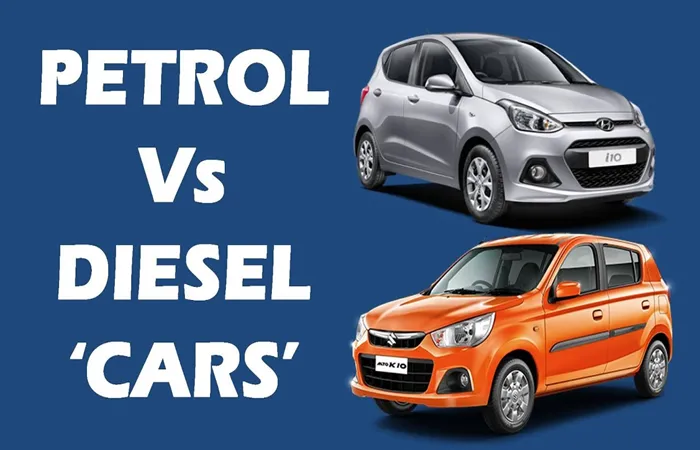When it comes to choosing a car, one of the most important decisions is selecting the type of fuel that best suits your needs. Petrol and diesel are the two primary fuel options, each offering distinct advantages and disadvantages. This article provides a comprehensive comparison to help you make an informed choice.
Understanding Petrol and Diesel Engines
Before delving into the specifics, it’s essential to understand the fundamental differences between petrol and diesel engines:
Petrol Engines: These engines rely on spark plugs to ignite a mixture of air and fuel. They typically produce less torque but higher RPMs, making them suitable for lighter vehicles and urban driving.
Diesel Engines: Diesel engines compress air to a high pressure, causing it to heat up. Fuel is then injected, igniting due to the high temperature. This process results in higher torque, beneficial for heavy-duty tasks and long-distance travel.
Fuel Efficiency
Fuel efficiency is a crucial factor for many car buyers:
Diesel Cars: Diesel engines are renowned for their exceptional fuel efficiency. They consume 20-30% less fuel than petrol engines for the same distance, making them a preferred choice for long-distance driving. Diesel vehicles are ideal for high-mileage drivers who prioritize lower running costs.
Petrol Cars: Petrol engines generally consume more fuel compared to diesel engines, leading to higher fuel costs over time. However, advancements in engine technology have led to improvements in fuel efficiency for petrol vehicles.
Performance and Towing Capacity
Performance requirements vary based on individual needs:
Diesel Cars: Diesel engines deliver higher torque, making them suitable for towing heavy loads and tackling rugged terrains. This torque advantage ensures steady performance at low RPMs, ideal for highway cruising and off-road adventures.
Petrol Cars: Petrol engines excel in delivering quick acceleration and a smoother driving experience. They rev higher and offer more power per unit of displacement, making them ideal for sporty and dynamic driving styles.
Maintenance and Durability
Maintenance considerations can influence long-term ownership costs:
Diesel Cars: Diesel engines often require more expensive maintenance due to complex components such as particulate filters and advanced fuel injection systems. However, these engines are built to withstand higher stress and can last over 300,000 miles with regular care.
Petrol Cars: Petrol engines are designed simpler, resulting in lower maintenance costs and easier repairs. While their lifespan is generally shorter than diesel engines, they are reliable for moderate usage.
Environmental Impact
Environmental concerns are increasingly influencing fuel choices:
Diesel Cars: Modern diesel engines produce less CO2 than petrol engines, contributing to reduced greenhouse gas emissions. However, they emit higher levels of nitrogen oxides (NOx) and particulates, which negatively impact air quality.
Petrol Cars: Petrol engines produce fewer particulates and NOx, making them less harmful to urban air quality. However, they emit higher levels of CO2, which contributes to global warming.
Cost of Ownership
The overall cost of ownership encompasses various factors:
Diesel Cars: Diesel vehicles often come with a higher upfront cost due to advanced engine technology. While diesel fuel is cheaper per mile and offers better mileage, the initial purchase price and maintenance expenses can offset these savings.
Petrol Cars: Petrol cars have a lower purchase price, making them more accessible to a broader range of buyers. Their maintenance costs are also lower, contributing to overall affordability.
Engine Longevity
The durability of the engine affects long-term value:
Diesel Cars: Diesel engines are designed for durability, with robust construction that handles higher compression ratios. This makes them a long-lasting option for drivers who accumulate significant mileage annually.
Petrol Cars: While petrol engines may not last as long as diesel ones, they are sufficient for most drivers, especially those with average annual mileage.
Driving Experience and Noise Levels
Driving comfort and noise can influence satisfaction:
Diesel Cars: Diesel engines provide a smoother experience during highway driving. However, they may feel less responsive in stop-and-go city traffic due to their lower RPM range.
Petrol Cars: Petrol engines are quieter at idle and deliver a seamless driving experience in urban settings. Their ability to rev higher enhances the fun factor for spirited driving.
Resale Value
Resale value considerations can impact the total cost of ownership:
Diesel Cars: Diesel vehicles typically have a higher resale value, attributed to their fuel efficiency and longer lifespan. Buyers seeking economical long-term solutions often prefer them.
Petrol Cars: Petrol cars depreciate faster than diesel vehicles, but their lower initial cost and widespread appeal ensure a steady demand in the used car market.
Government Policies and Taxes
Regulatory factors can affect ownership costs:
Diesel Cars: Government regulations and tax policies often influence the choice between diesel and petrol cars. Diesel vehicles may face higher taxes or restrictions in some regions due to environmental concerns, whereas petrol cars are generally less regulated.
Petrol Cars: Petrol vehicles may be subject to different taxation and regulatory standards, which can vary by region and impact the overall cost of ownership.
Availability and Market Trends
Market dynamics can influence vehicle choices:
Diesel Cars: Diesel vehicles are more popular in regions where long-distance travel and heavy-duty usage are common. However, their market share is declining in some areas due to stricter emission norms.
Petrol Cars: Petrol cars dominate the market, offering a wider range of models and features. They remain the go-to choice for urban and suburban drivers.
Making the Choice: Diesel or Petrol?
Your choice between diesel and petrol should align with your driving habits, budget, and environmental priorities:
Opt for a Diesel Car if:
You frequently drive long distances.
You require a vehicle for towing or heavy-duty tasks.
You prioritize fuel efficiency over initial costs.
Choose a Petrol Car if:
You primarily drive short distances or in urban areas.
You want a more affordable and low-maintenance vehicle.
You prefer a responsive driving experience.
Conclusion
Both diesel and petrol cars have their unique advantages and are suited to different driving needs. Assess your personal circumstances, driving patterns, and priorities to determine which fuel type aligns best with your requirements.
Related Topics:

